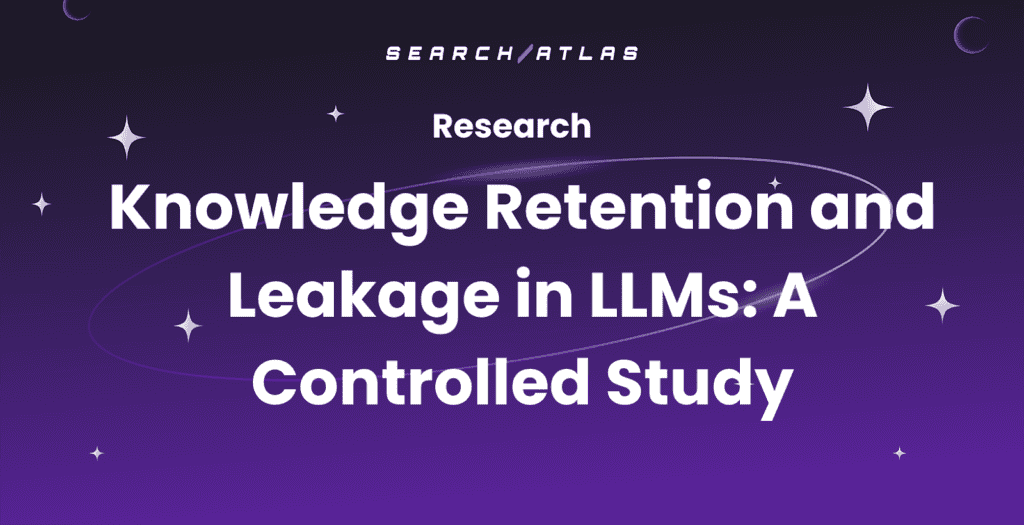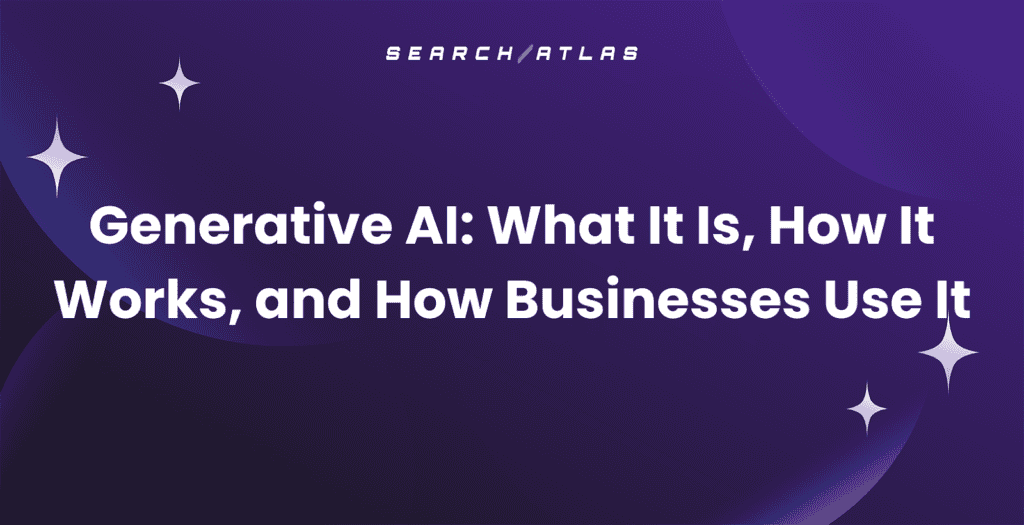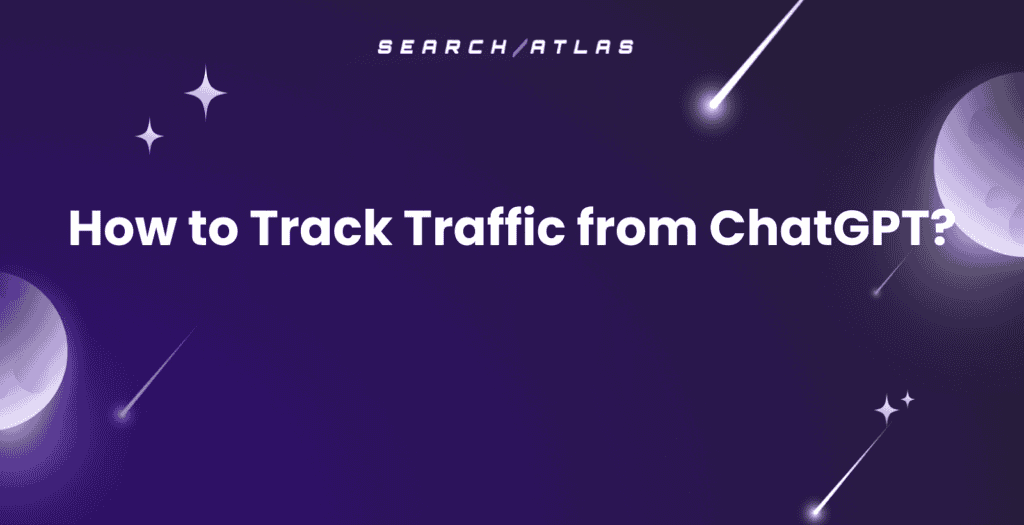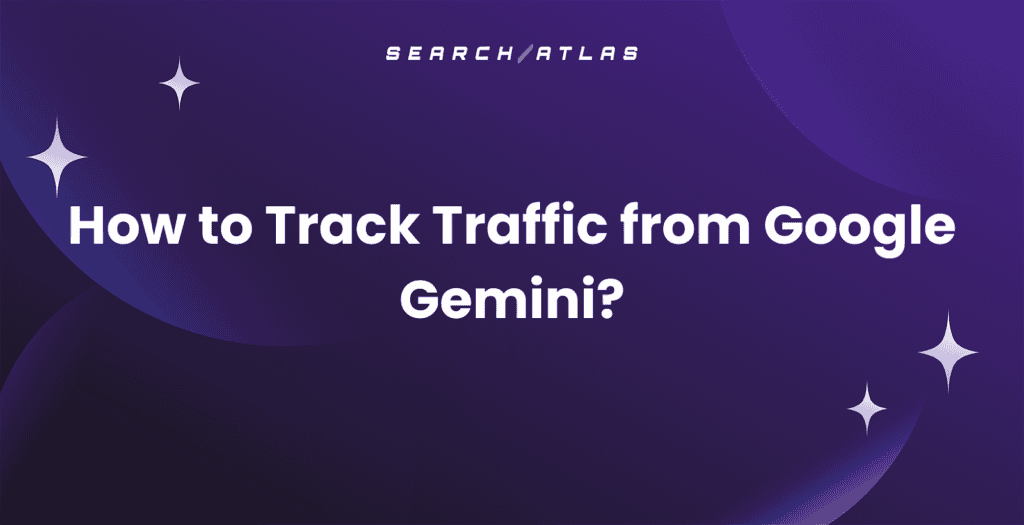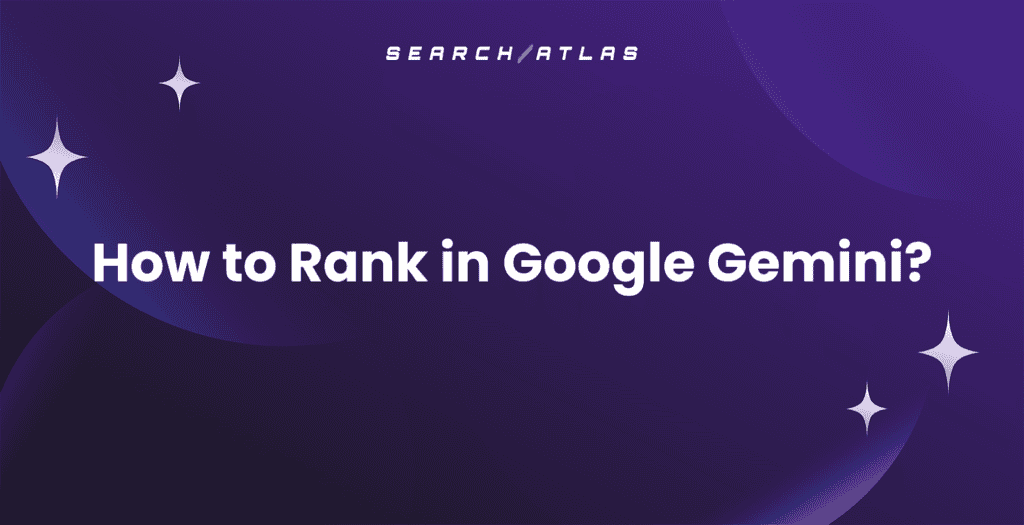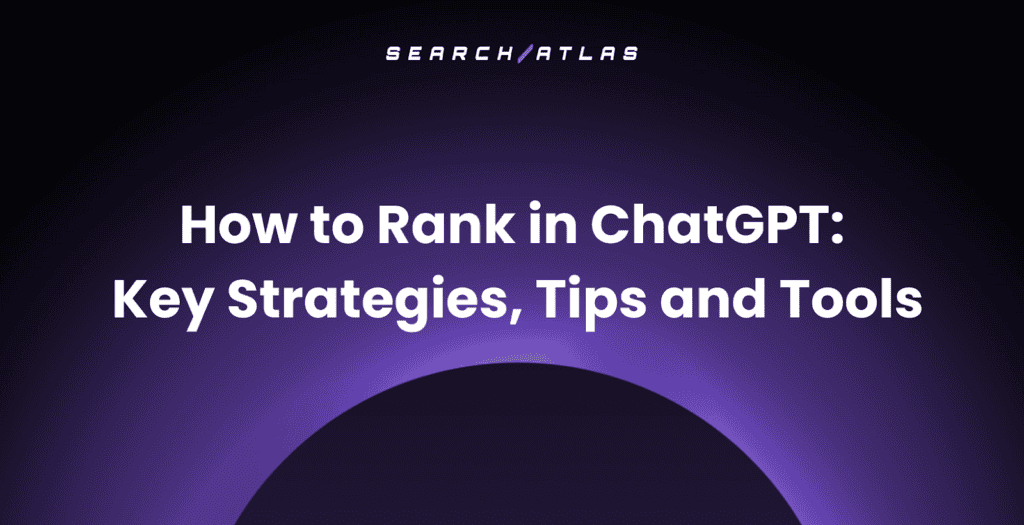The best Moz alternatives are SEO tools that replace or outperform Moz in the core SEO tasks, such as keyword research, rank tracking, backlink analysis, and technical auditing.
Moz, formerly known as SEOMoz, has earned a reputation for intuitive SEO tools like Keyword Explorer, Link Explorer, and MozBar. However, Moz falls short for advanced workflows. Its keyword and backlink databases are limited compared to those of Moz competitors. Moz’s reporting lacks flexibility, local SEO support is limited to the US, UK, and Canada, and feature upgrades quickly increase costs.
SEO professionals often seek alternatives to Moz that offer deeper data, more flexible tracking, and better value for technical, content, and link-building use cases.
The best Moz alternatives in 2025 are Search Atlas, SE Ranking, and Semrush. Moz’s strength remains in education and beginner-friendly tools, but it has lost ground in the professional and enterprise market to more data-rich and flexible alternatives.
The 15 best Moz alternatives for every budget and use case are listed below.
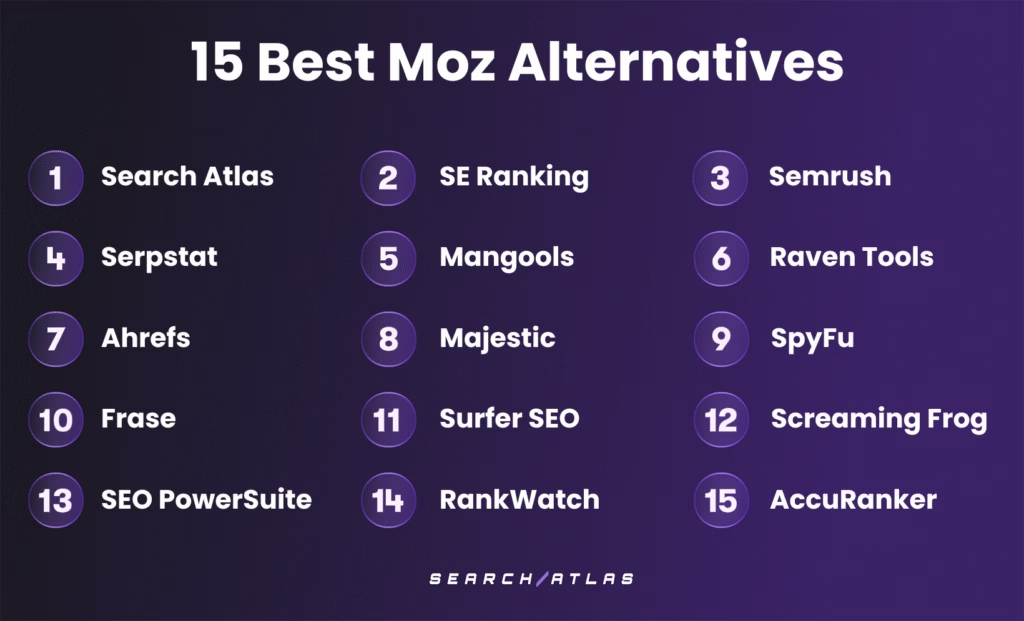
Best All-in-One SEO Alternatives to Moz
1. Search Atlas
Search Atlas is an all-in-one SEO and PPC automation platform for SEOs and agencies that manage rankings, audits, content, local SEO, link building, and reporting. The Search Atlas SEO platform connects directly to Google Search Console (GSC), Google Business Profile (GBP), and Google Ads to deliver real-time data. Moz relies on internal estimates and third-party crawlers, which limit keyword coverage and backlink freshness.
Compared to Moz, Search Atlas is the strongest alternative for automation, content optimization, local SEO, rank tracking, link building, and technical audits among all listed tools.
Every Search Atlas plan includes OTTO SEO, a powerful AI assistant that fixes on-page issues, improves internal linking, deploys schema, resolves technical problems, and optimizes GBP profiles. OTTO SEO executes changes directly on the site through a pixel or plugin. Moz only surfaces errors without resolving them.
For content optimization, the Search Atlas Content Genius tool provides SERP-based outlines, entity scoring, and internal link suggestions while writing, in addition to AI-powered drafts. Moz does not include NLP-based optimization or SERP content guidance, which forces users to rely on external editors. SCHOLAR, Search Atlas’s built-in content scorer, evaluates factuality, clarity, and human effort using Page Quality principles. This feature is missing entirely in Moz Pro.
Search Atlas offers full-stack local SEO without requiring a separate subscription. Users track GBP visibility by zip code, schedule AI responses to reviews, and automate citation building. Moz Local charges separately and offers pricy add-ons like Listings AI and Reviews AI. Moz Local supports only three countries, while Search Atlas covers global heatmaps across all tiers.

If we compare Moz vs. Search Atlas in terms of backlinks, Search Atlas includes a live database of over 100 trillion links with filters for anchor type, domain power, keyword context, and velocity. Users compare link gaps, visualize authority networks, and launch outreach campaigns from the same dashboard. Moz Link Explorer is slower to refresh and lacks integrated outreach or live filtering.
Search Atlas Domain Power (DP) metric replaces Moz’s Domain Authority (DA) metric by incorporating actual GSC performance data instead of estimating based on backlinks alone.
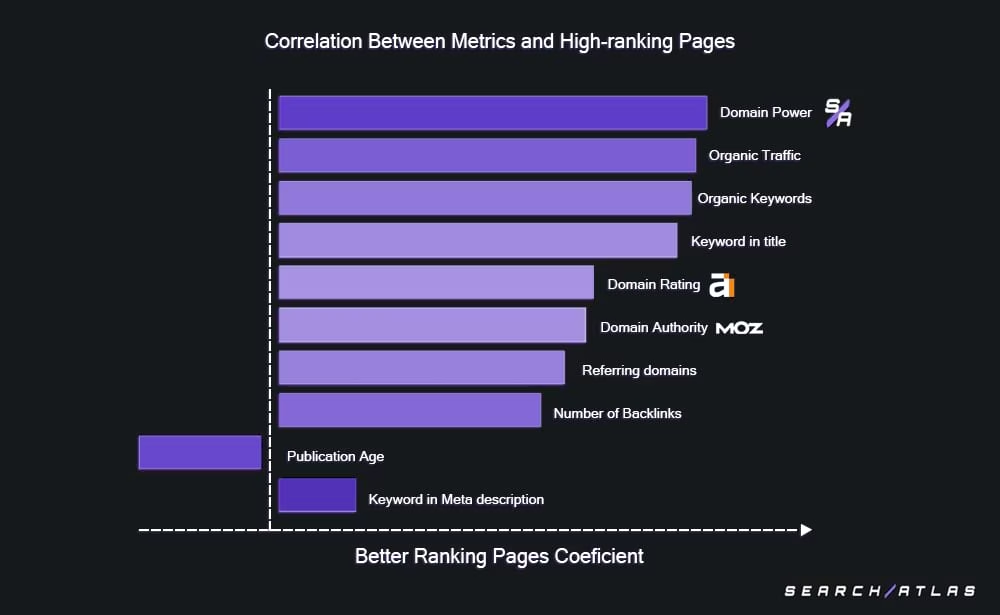
Search Atlas is a paid platform with a free 7-day trial and pricing that starts at $99/month. Unlike Moz, which splits features between Moz Pro and Moz Local, Search Atlas includes everything (local tracking, content optimization, AI automation, and white-label reports) in every plan without gated upgrades.
Pros highlighted in the Search Atlas SEO tool review include direct GSC keyword data, automated SEO fixes, AI-assisted content tools, narrow local SEO tracking, backlink outreach features, and customizable client reporting. Search Atlas supports PPC automation as well through its OTTO Google Ads tool, so it adds another dimension of usefulness to the users who depend on both organic and paid search.
The main drawback of Search Atlas is that the platform requires onboarding to use its automation features to the maximum, especially for agencies that manage multiple domains.
Search Atlas is the best Moz alternative for SEO teams that need automation, deeper data, and unified control over content, links, and local rankings without needing separate logins or paying for add-ons.
2. SE Ranking
SE Ranking is a budget-friendly SEO platform designed for freelancers, agencies, and SMBs that need keyword tracking, audits, backlink analysis, and competitor insights. The SE Ranking platform includes tools for site health monitoring, real-time rank updates, and content optimization. SE Ranking balances ease of use with functionality, which makes it an appealing choice for users scaling from basic SEO into more professional workflows.
SE Ranking is a better Moz Pro alternative for rank tracking, keyword research, content optimization, and technical auditing. SE Ranking tracks daily positions in multiple search engines and devices, while Moz updates weekly and offers fewer geo-segmentation options.
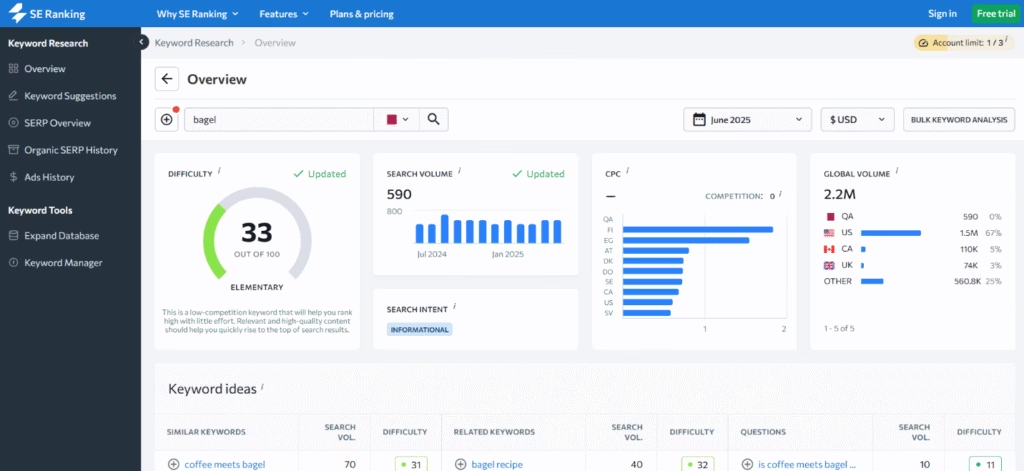
SE Ranking Keyword Research tool pulls from a 5.3B keyword database with SERP features, search volume, and traffic forecast, compared to Moz’s smaller, click-through-focused suggestions.
SE Ranking includes a dedicated Content Editor that Moz lacks, and its audits span over 115 metrics, including Core Web Vitals and JS-rendered pages, which gives it an edge on modern site analysis, as our SE Ranking review suggests.
SE Ranking is a paid platform with plans starting at $65/month, and it offers a free 14-day trial. Pricing scales by usage, with generous limits on keywords, projects, exports, and no separation between local and core SEO features, unlike Moz’s split between Moz Pro and Moz Local.
Users choose SE Ranking for its pros, like clean UX, fast project setup, and scalable pricing model. The platform supports long-term tracking, allows CSV and guest-link exports, and includes a flexible competitor research tool for both SEO and PPC.
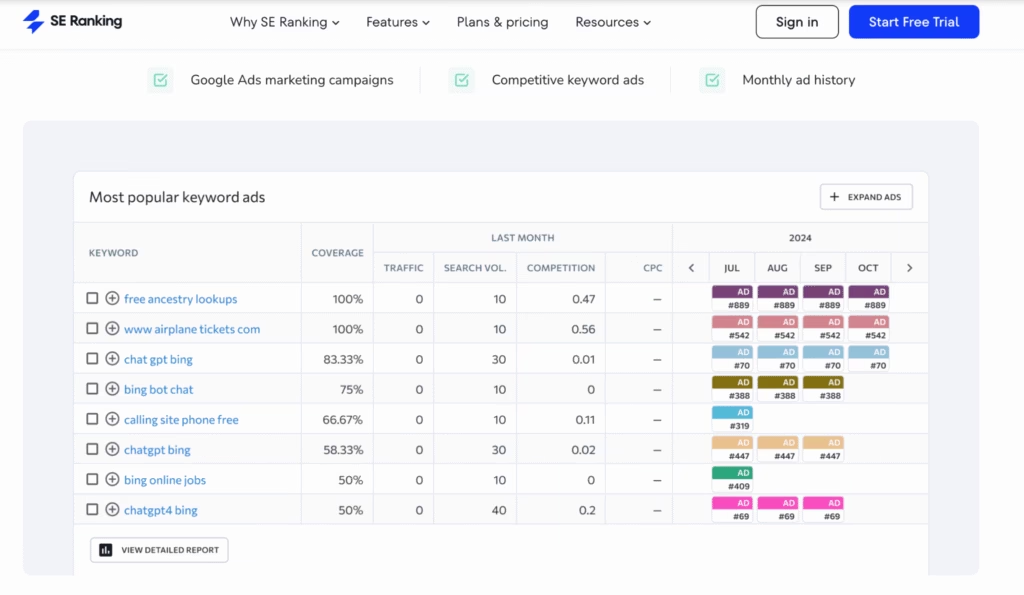
The cons of SE Ranking as an alternative to Moz are that its backlink index is smaller than Moz’s Link Explorer, and some data (like traffic estimation) lacks the precision of larger platforms.
Still, if we compare Moz vs. SE Ranking, for most Moz users seeking better value, fresher data, and stronger automation, SE Ranking is a practical upgrade.
3. Semrush
Semrush is a digital marketing suite that combines SEO, content, paid search, and social analytics in a single platform. Semrush supports high-volume keyword research, detailed backlink audits, rank tracking, content optimization, and advertising insights.
As a Moz alternative, Semrush is a better fit for professionals who need deeper keyword research, more accurate SERP tracking, and integrated paid media tools. Semrush covers over 26 billion keywords globally, compared to Moz’s 1.25 billion, and updates ranking data daily, while Moz refreshes weekly.
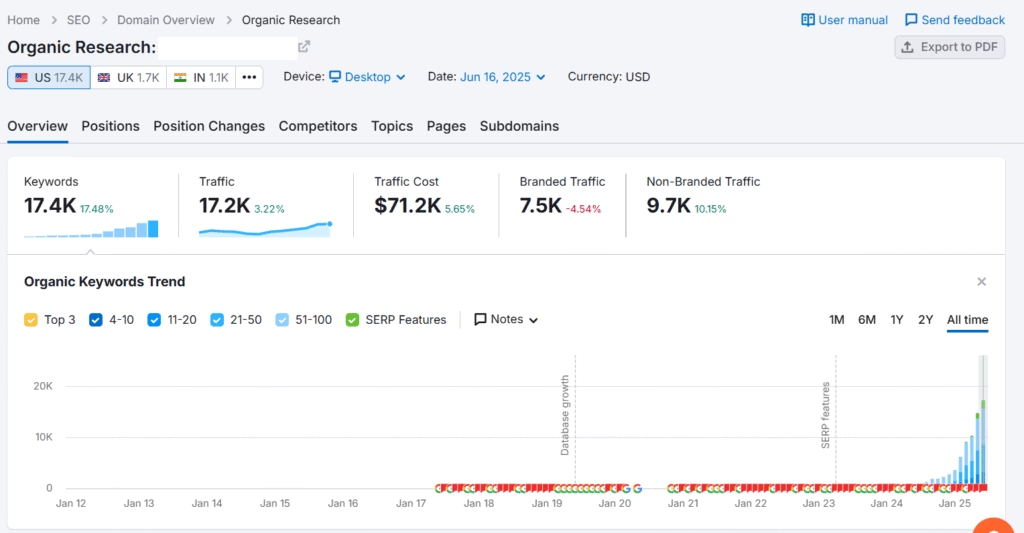
Semrush includes SERP feature filters, search intent tags, and keyword gap comparisons of multiple competitors. In backlink monitoring, Semrush surfaces toxic links and link growth patterns, while Moz emphasizes authority scoring. Semrush includes AI writing assistance (via ContentShake) and PPC campaign tracking, neither of which is available in Moz Pro.
Semrush is a paid tool with plans starting at $139.95/month, and it offers a 7-day free trial. Semrush is more expensive than Moz, and it is not suitable for users seeking free Moz alternatives. However, for SEOs evaluating Moz Pro alternatives with more automation and data, our Semrush vs. Moz vs. Ahrefs review shows that Semrush provides better value at scale.
As one of the most popular Moz competitors, Semrush stands out for large-scale data coverage, competitive research, and full-funnel marketing support.
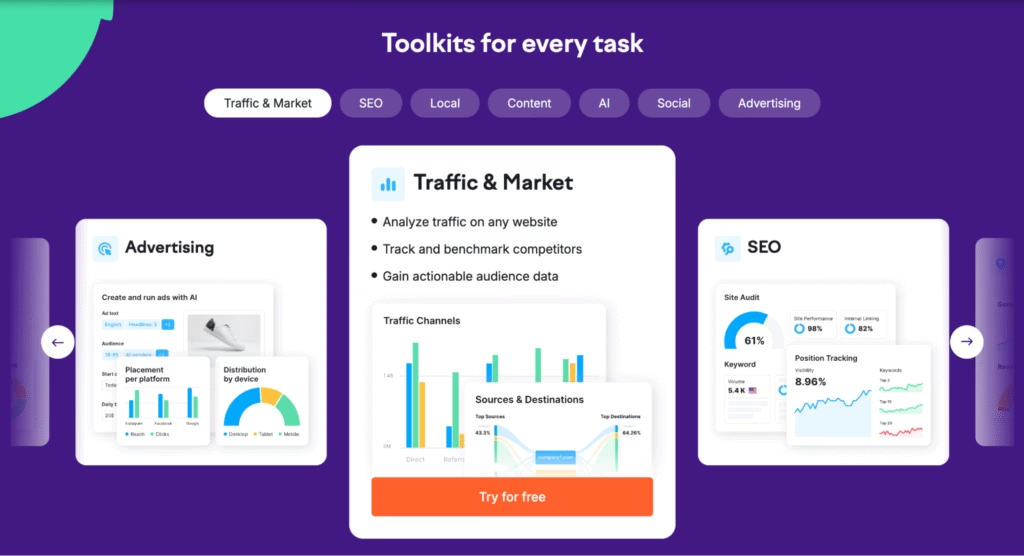
Pros highlighted in the Semrush SEO tool review include extensive keyword databases, multi-channel visibility, and customizable reporting. The main cons of Semrush are a higher learning curve and premium pricing for additional users and agency kits.
Still, for advanced SEOs comparing Moz Pro alternatives or looking for a full-stack SEO and PPC platform, Semrush remains one of the best Moz alternatives in 2025.
4. Serpstat
Serpstat is an all-in-one SEO platform that supports keyword research, rank tracking, backlink analysis, site auditing, and content optimization for 230+ Google regions. Serpstat is built for scalability, and it offers bulk data handling, white-label reports, and automated workflows for international teams and agencies.
As a Moz alternative, Serpstat provides stronger keyword clustering, wider rank tracking coverage, and better multi-site reporting. Serpstat’s keyword tool groups up to 50,000 terms by SERP overlap, helping users identify topical clusters and content gaps.
Serpstat surfaces more international and long-tail opportunities than Moz, which has a smaller keyword index and limited segmentation.
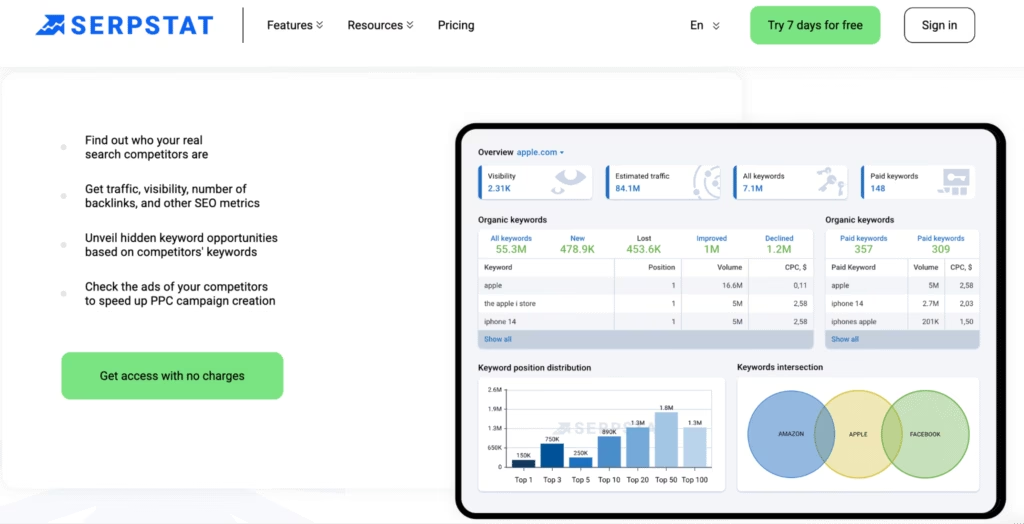
For backlink analysis, Serpstat compares domains across 18 metrics and visualizes shared link donors between competitors.
Serpstat’s audit tool checks crawl depth, status codes, mobile performance, and on-page structure, while Moz’s audit tool focuses on surface-level checks without error prioritization.
Serpstat includes AI content tools for rewriting and originality scoring, which are not available in Moz.
Serpstat is a paid platform with plans starting at $69/month, which makes it one of the cheaper Moz alternatives for budget-conscious SEO teams. Higher-tier plans unlock API access, AI modules, and white-label deliverables without hidden upgrades.
Pros in the Serpstat review mention wide geographic tracking, smart keyword clustering, and affordable team pricing. Serpstat’s main cons are a smaller backlink database and feature caps on entry-level tiers.
For SEOs comparing Moz Pro alternatives, Serpstat delivers better multi-region tracking and broader automation for agencies that manage complex or international SEO campaigns.
5. Mangools
Mangools is an entry-level SEO suite featuring five SEO tools of KWFinder, SERPChecker, SERPWatcher, SiteProfiler, and LinkMiner. Mangools targets freelancers, small businesses, and marketers who want easy-to-use SEO software without a steep learning curve. Mangools stands out with a clean UI, beginner-friendly workflows, and affordable pricing.
Mangools is a better alternative to Moz for users who prioritize ease of use and low-cost keyword research. The KWFinder tool offers straightforward keyword suggestions with difficulty scores, SERP snapshots, and localized volume data. Moz Keyword Explorer includes more advanced filters and click-through estimates, but KWFinder responds faster and feels more intuitive for beginners.
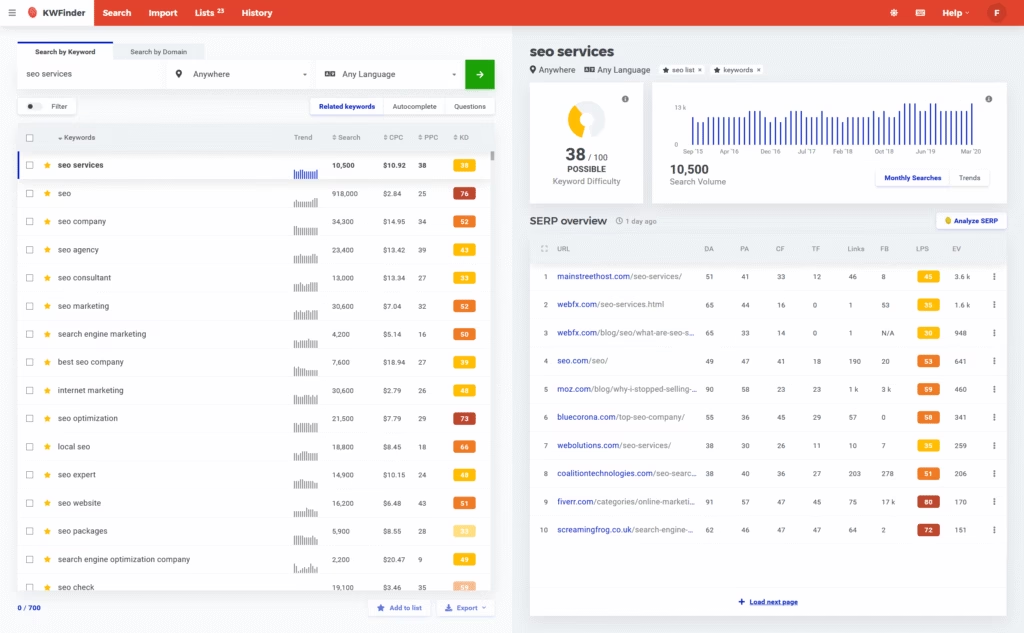
Mangools includes SERPChecker for real-time ranking insights and LinkMiner for backlink analysis, though the backlink index is smaller than Moz’s Link Explorer.
Unlike Moz, Mangools does not offer domain authority scores or in-depth technical audits, which limits its usefulness for advanced campaigns.
For users looking for a MozBar alternative, Mangools includes a lightweight browser extension that overlays SEO metrics like keyword difficulty and SERP insights directly on Google results. This makes it one of the best free MozBar alternatives for users who want quick on-page analysis without logging into a full dashboard.
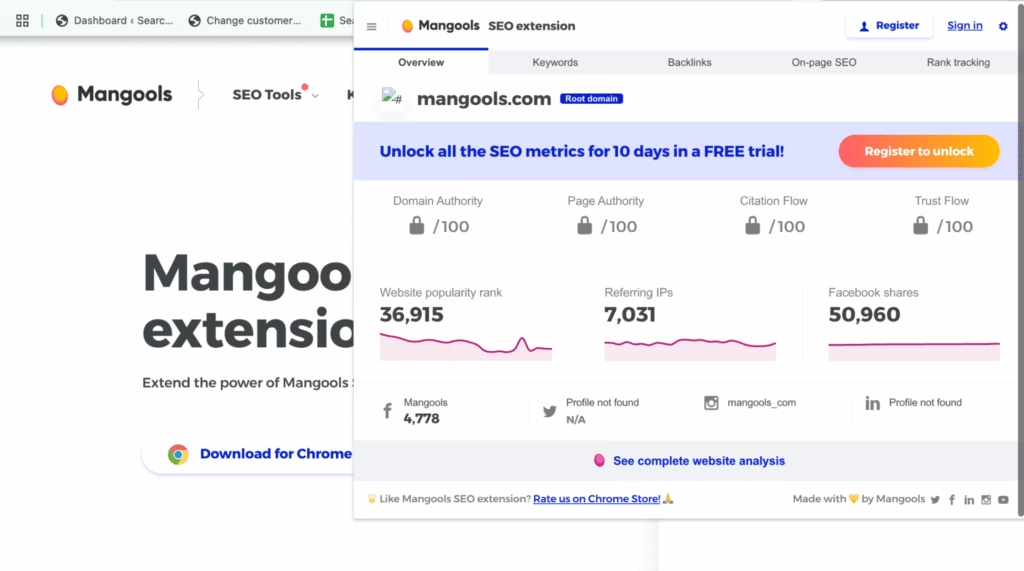
Mangools is a paid platform with plans starting at $49/month, making it a cheaper Moz Pro alternative for users who want keyword tracking, competitor insights, and rank monitoring without complex features. Mangools offers a 10-day free trial without requiring credit card details.
Pros shown in the Mangools review include fast setup, simple UI, and focused tools for keyword and SERP analysis. Mangools cons are limited backlink data, no AI support, and weaker technical auditing.
Compared to Moz, Mangools performs better for light SEO users who want actionable data quickly, but falls short for SEOs who need advanced analytics or full-stack reporting.
6. Raven Tools
Raven Tools is an all-in-one SEO and reporting platform tailored for agencies that manage multiple clients and campaigns. Raven Tools includes features for keyword research, site auditing, rank tracking, backlink monitoring, and white-label reporting.
Raven integrates with platforms like Google Search Console, Majestic, and social media APIs to consolidate SEO, PPC, and social performance into one reporting hub.
As a Moz alternative, Raven Tools stands out for its flexible reporting and broader channel integrations. While Moz Pro focuses on organic SEO features, such as DA scoring and keyword tracking, Raven Tools supports campaign-level visibility by blending SEO, ads, and social data into custom reports.
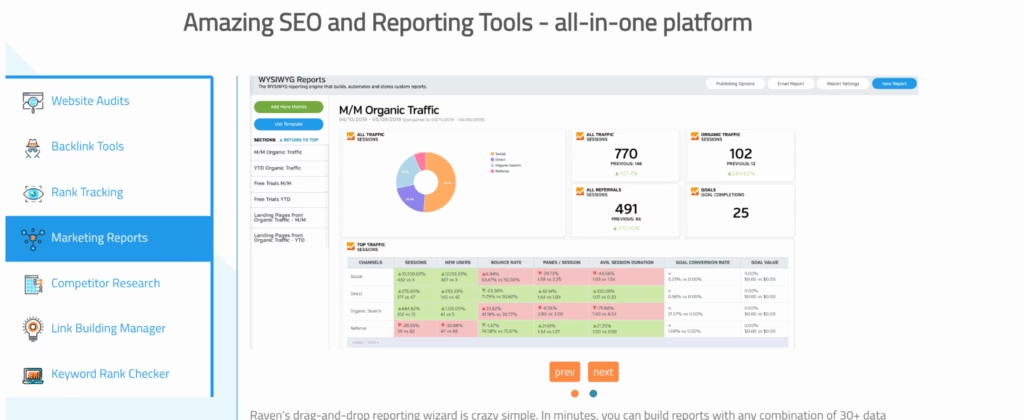
Raven Tools allows unlimited keyword storage, better collaboration for client-facing teams, and built-in CRM-style tools for link building and outreach management.
Raven Tools is a paid platform, with pricing starting at $49/month, undercutting Moz’s base plan by half. Raven includes 1,500 rank checks and multi-user support, which makes it more scalable for small agencies.
Pros emphasized in the Raven Tools review are customizable dashboards, integrated PPC and social tracking, and unlimited keyword organization. These features make Raven Tools a strong Moz Pro alternative for reporting-heavy agencies.
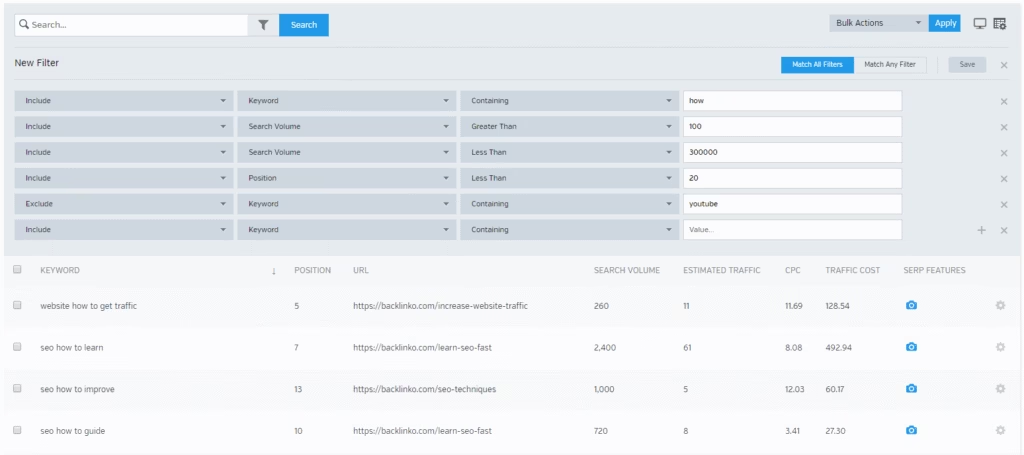
However, Raven’s drawbacks include a less modern UI and reliance on third-party data (e.g., Majestic for backlinks), which limits depth in backlink analytics compared to Moz Link Explorer.
For agencies comparing Raven Tools vs. Moz, Raven Tools is a good Moz Pro alternative for teams that prioritize streamlined client reporting, cross-channel data integration, and cost-effective SEO tools for multiple domains.
Best Alternatives to Moz for Backlink and Competitor Research
7. Ahrefs
Ahrefs is a professional-grade SEO platform known for its backlink index, competitor research tools, and historical SERP data. Ahrefs includes core tools like Site Explorer, Keywords Explorer, Content Explorer, Rank Tracker, and Site Audit. Ahrefs tools are suited for SEOs who need deep backlink data, competitive insights, and reliable ranking metrics.
Ahrefs is a Moz alternative for backlink analysis and competitive SEO insights. Ahrefs’ backlink index is larger and updated more frequently than Moz’s, and the Referring Domains view, Top Linked Pages, and Link Intersect tools provide more granular competitive context.
While Moz includes Domain Authority and Spam Score, Ahrefs’ Domain Rating (DR) and URL Rating (UR) offer a broader backlink trust perspective, often favored by link builders.
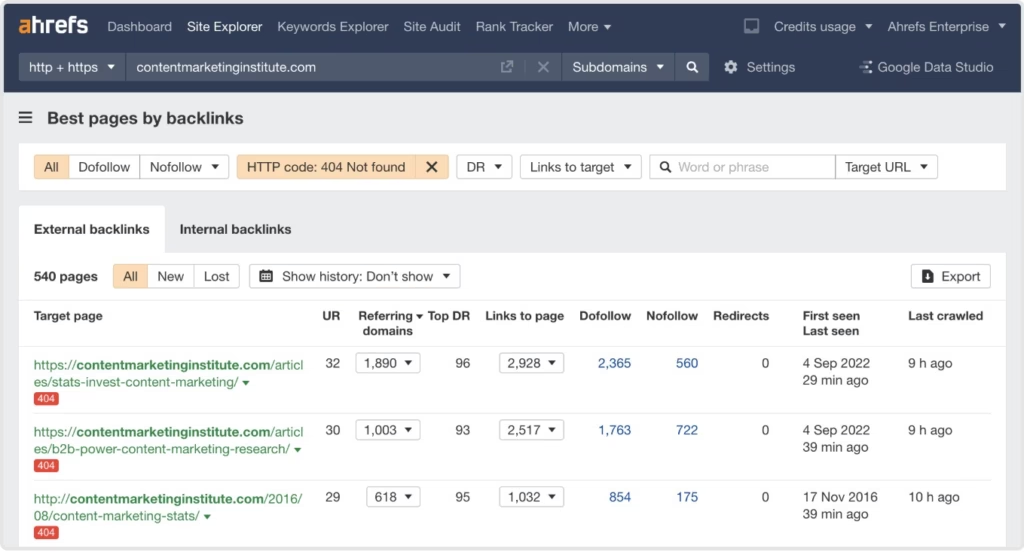
Ahrefs outperforms Moz in organic traffic estimation, content gap analysis, and rank tracking detail, especially on higher-tier plans that include historical data and SERP movement insights. Ahrefs Site Explorer lets you reverse‑engineer competitor performance with live traffic insights, backlink profiles, and paid search data.
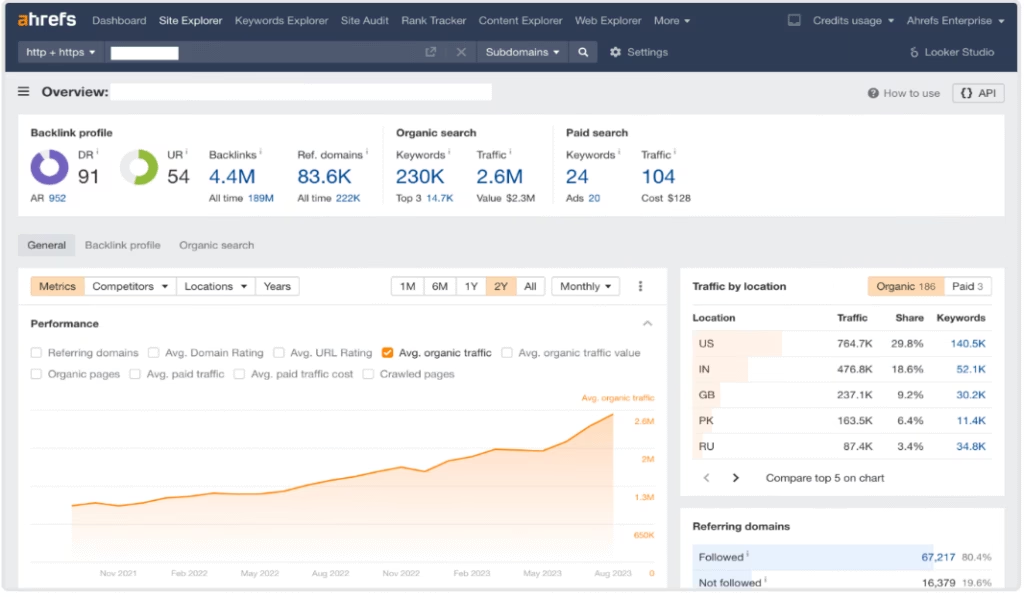
Ahrefs is a paid tool, with plans starting at $129/month, and it does not offer a free trial. However, it includes a free Ahrefs Webmaster Tools (AWT) account with limited features. While more expensive than Moz, Ahrefs provides deeper data and more robust tools for backlink and competitor analysis.
Pros in the Ahrefs SEO Tool review include the depth of its backlink data, traffic estimation accuracy, and feature-rich interface.
Ahrefs’ cons are the high price point, limited seats on lower tiers, and the lack of a built-in keyword grouping or automated reporting system.
Ahrefs is ideal for advanced SEOs who need in-depth link intelligence, domain comparisons, and data-driven outreach strategies. When comparing Ahrefs vs. Moz, Ahrefs is a more powerful but less beginner-friendly option for technical users and link-building specialists.
8. Majestic
Majestic is a specialized backlink analysis tool designed to map the web’s link graph using proprietary metrics like Trust Flow (link quality) and Citation Flow (link volume).
Unlike Moz, which includes backlinks as one part of a broader SEO toolkit, Majestic focuses exclusively on link intelligence. Majestic provides detailed backlink reports, domain comparisons, anchor text breakdowns, link history, and visual link maps that help users understand authority and relevance.
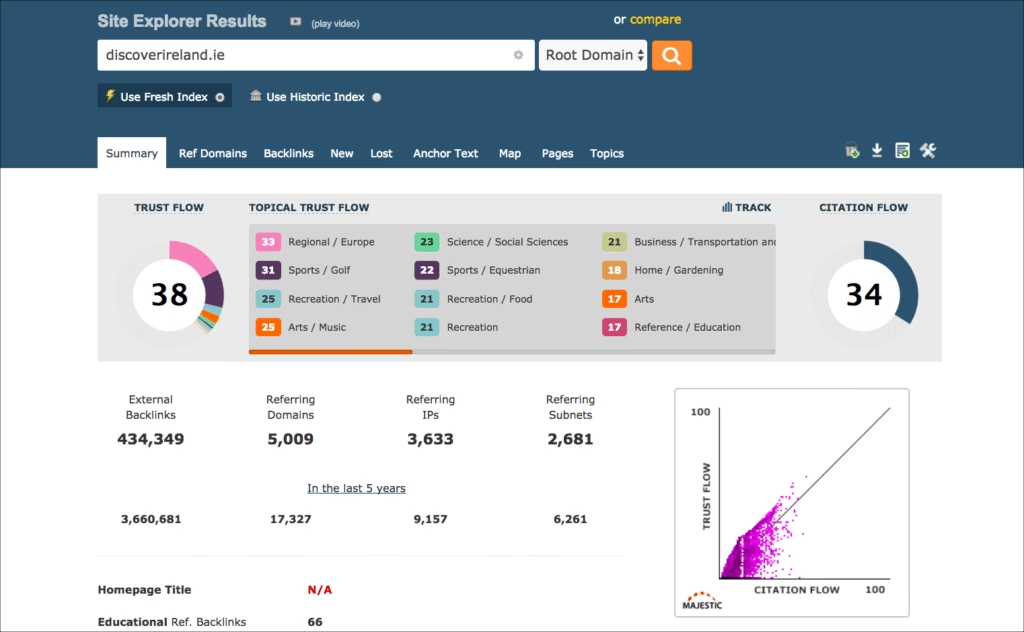
Compared to Moz, Majestic is a better alternative for backlink analysis and link prospecting workflows. While Moz’s Link Explorer offers domain authority scores and spam indicators, Majestic gives deeper segmentation by link context, crawl status, and topic relevance.
Majestic maintains one of the oldest and largest link databases, which helps uncover historical linking trends not available in Moz.
Majestic’s Chrome extension is a strong MozBar alternative specifically for link quality assessment and SERP-level backlink evaluation. Majestic’s Chrome extension lacks the on-page SEO features of MozBar, but outperforms it in backlink trust scoring and link context
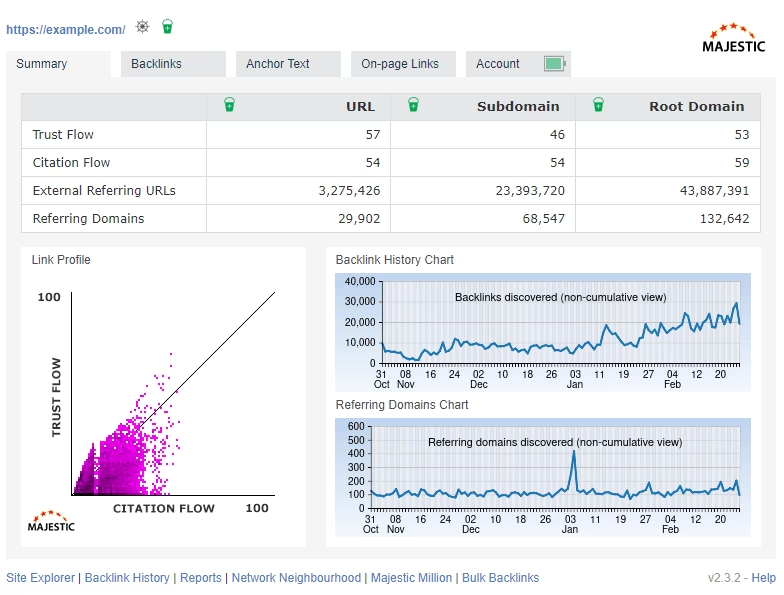
Majestic is a paid tool, with plans starting at $49.99/month, and it does not support rank tracking, keyword research, or technical audits. This singular focus on backlinks makes it less versatile than Moz, but more powerful for SEOs who specialize in link audits, penalty recovery, or off-page SEO campaigns.
Pros listed in the Majestic review are advanced link filtering, proprietary scoring systems, and rich historical backlink data. Cons of Majestic are a dated user interface, a steep learning curve, and the lack of on-page or content SEO features.
For SEOs comparing Moz vs. Majestic, Majestic serves as a niche alternative ideal for technical link audits, toxic backlink cleanup, and trust-based outreach research.
9. SpyFu
SpyFu is a competitor research and keyword tool used for SEO and PPC strategy. SpyFu focuses on uncovering the keywords that competitors rank for and bid on in Google Ads. SpyFu includes tools for keyword discovery, backlink monitoring, rank tracking, and SERP analysis. It allows unlimited data exports, unlimited keyword results, and white-label reports on all paid plans.
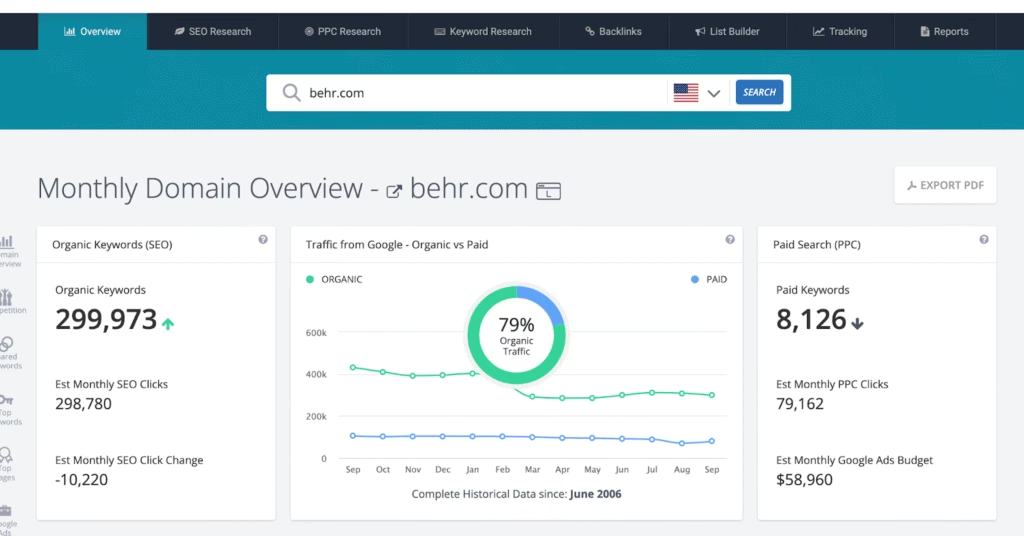
SpyFu is a better Moz alternative for PPC competitor research, historical keyword tracking, and combined SEO and Google Ads insights. Moz does not support paid search data or ad test history. SpyFu shows all past keywords and ads competitors have used and reveals keyword trends over time.
SpyFu identifies backlink leads by keyword as well, which is not possible with Moz Link Explorer.
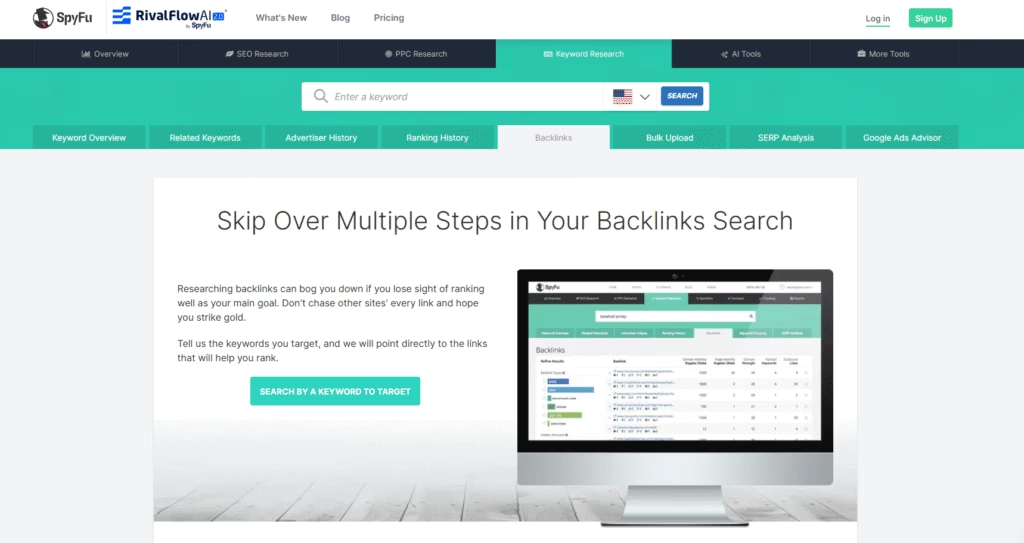
SpyFu includes RivalFlow AI, a content comparison tool that shows why competitor pages outrank yours and suggests exact changes to close the gap. Moz does not offer competitive content gap analysis at the page level.
SpyFu is a cheaper Moz alternative, with a basic plan starting at $9/month. There is no traditional free trial. All plans include unlimited searches, downloads, and a 30-day money-back guarantee.
Pros included in the SpyFu review are unlimited data access, keyword history, ad copy archives, and affordable pricing for small teams. SpyFu supports unlimited projects, outreach features, and custom reports at all tiers.
The main drawbacks of SpyFu are an outdated interface, a shallow backlink index, and no real-time site audit system.
Compared to Moz, SpyFu is best for marketers, freelancers, and small agencies focused on competitor research, PPC strategy, and lead generation. Moz is stronger for teams that need technical SEO.
Best Alternatives to Moz for Content SEO
10. Frase
Frase is a content-focused SEO tool that uses AI to help users create, optimize, and manage rank-ready content. The Frase platform includes features for SERP research, AI-assisted writing, content briefs, optimization scoring, and team collaboration. Frase analyzes top-ranking pages to extract headings, topics, and intent, then generates outlines and content that match search engine expectations.
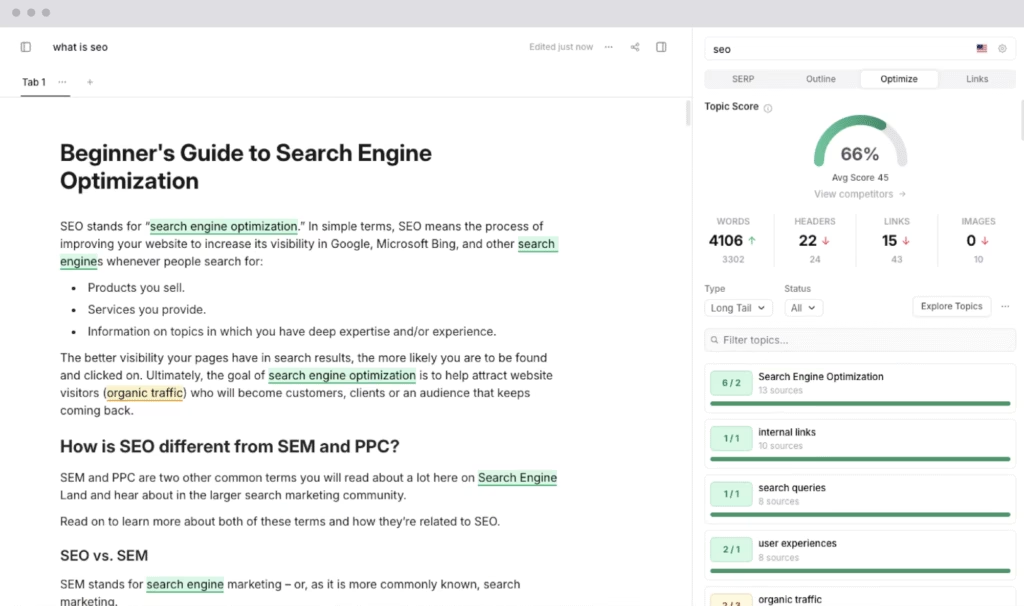
Frase is one of the best Moz alternatives for content SEO. Frase replaces Moz’s keyword-focused tools with full document creation workflows. Users create content briefs, write articles, and optimize drafts from a single dashboard.
Unlike Moz, Frase offers NLP scoring, real-time SERP comparison, and GSC-integrated SEO analytics. Moz does not support full-document editing, AI rewriting, or real-time SERP benchmarks.
Frase is a paid tool with plans starting at $45/month for individual users and $115/month for teams. A free trial is available without a credit card.
Pros of Frase that showed up in our Frase review are detailed SERP extraction, document-based SEO workflows, and fast content optimization for Google and AI-driven search. Frase’s cons include limited backlink tools, no technical auditing, and feature paywalls on lower plans.
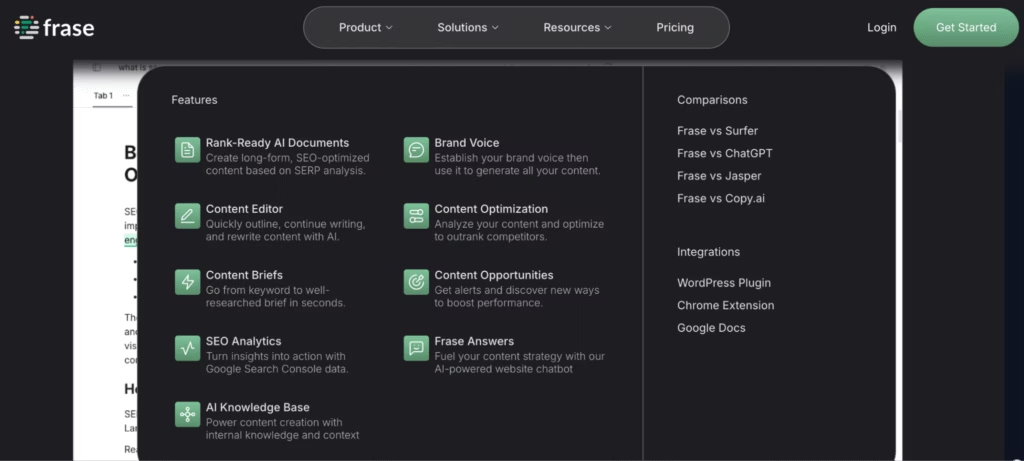
When we compare Moz vs. Frase, Frase works as an SEO Moz alternative for content marketers, SEO specialists, and in-house teams that want to produce optimized content fast without relying on separate keyword and writing tools, but it lacks a wider SEO toolbox.
11. Surfer SEO
Surfer SEO is a content optimization platform that helps users edit and structure pages based on live SERP benchmarks. Surfer SEO analyzes the top 10 ranking pages for a given keyword, then provides content guidelines including ideal word count, paragraph count, NLP terms, and heading structure.
The main Surfer SEO product is the Content Editor that updates scoring in real time while writing. Additional tools include a Topical Map generator, a Content Audit tool, and Surfer AI for instant article creation. The Surfer AI Tracker monitors your brand’s visibility in AI search and LLMs (Large Language Models).
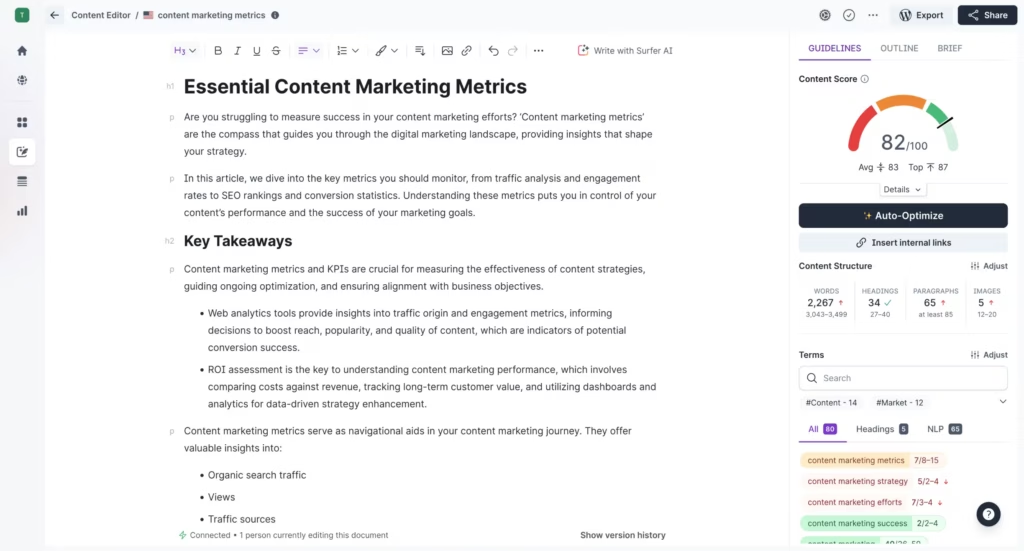
Surfer SEO is a better Moz alternative for on-page content optimization, topical planning, and SERP-aligned writing. Moz focuses on keyword research and link metrics, while Surfer helps writers structure and improve pages based on what already ranks. Surfer includes AI tools for content rewriting and quality detection, which Moz does not provide.
Surfer SEO is a paid platform, starting at $89/month. However, it offers free SEO tools like the AI Detector, AI Humanizer, and Keyword Surfer extension. These features make it one of the best free Moz alternatives for users who want lightweight on-page insights without subscribing to a full platform.
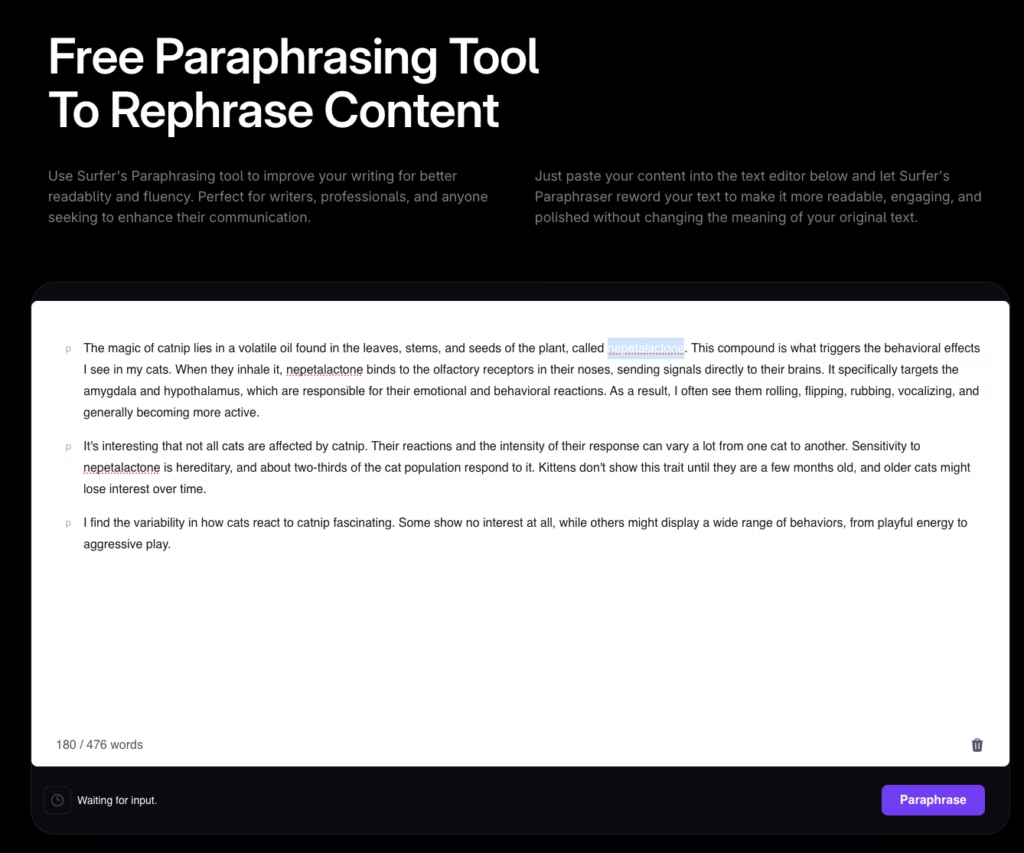
In the Surfer SEO review, users report fast optimization feedback, accurate SERP modeling, and flexible AI-supported workflows. Surfer SEO cons include minimal backlink analysis tools, absence of rank tracking features, limited technical SEO capabilities, and credit-based pricing for content edits.
Compared to Moz, Surfer SEO is a practical choice for SEOs who are focused on improving existing content and matching top-performing page structures.
Best Alternatives to Moz for Technical SEO and Rank Tracking
12. Screaming Frog
Screaming Frog is a desktop-based SEO crawler for auditing technical issues across small and large websites. The Screaming Frog SEO Spider scans up to 500 URLs for free and identifies broken links, redirect chains, duplicate content, meta issues, crawl depth, hreflang problems, structured data, and more.
Screaming Frog supports JavaScript rendering, sitemap generation, and integrations with Google Analytics (GA), Google Search Console (GSC), and PageSpeed Insights (PSI).
Screaming Frog is the best Moz alternative for technical SEO audits and site crawling. Moz Pro includes site auditing features, but they run from the cloud and offer less control over crawl scope, speed, and configuration.
Screaming Frog runs locally and updates results in real-time while crawling. It flags deep issues like blocked resources, canonical errors, mobile usability gaps, and near-duplicate content. Moz Pro does not support crawl comparison or custom XPath extraction.
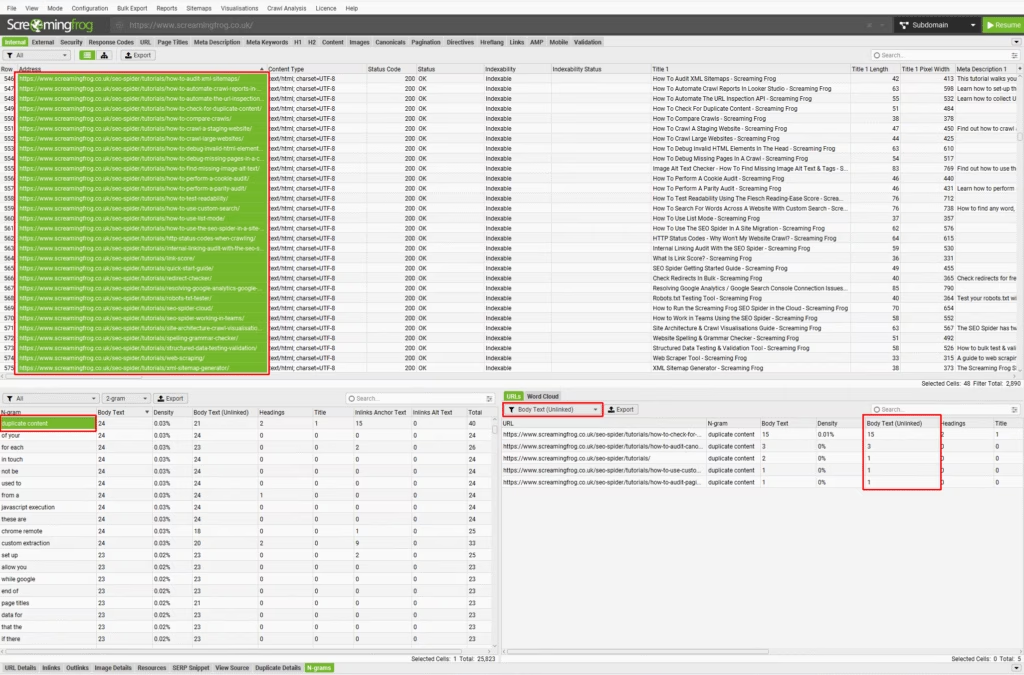
Screaming Frog offers a free version for up to 500 URLs per crawl. The paid license costs £199/year (approximately $250/year) and unlocks full functionality, including unlimited crawling, JavaScript rendering, custom extraction, and crawl scheduling.
In our Screaming Frog review, we noted its key strengths, like high data granularity, deep site structure analysis, and extensive export capabilities. Drawbacks of Screaming include the need for local installation, manual setup, and a UI that may overwhelm beginners.
Compared to Moz, Screaming Frog is better for SEO professionals who need a fast, scriptable, and audit-focused Moz Pro alternative with no reliance on cloud crawling or gated upgrades.
13. SEO PowerSuite
SEO PowerSuite is a downloadable desktop toolkit that combines four core SEO tools into a single interface. The four SEO PowerSuite tools are Rank Tracker, Website Auditor, SEO SpyGlass, and LinkAssistant. These tools cover keyword research, rank tracking, technical auditing, backlink analysis, content optimization, and link-building outreach.
Users on SEO PowerSuite run audits, extract structured data, compare competitors, and monitor site health with no data caps or usage-based pricing.
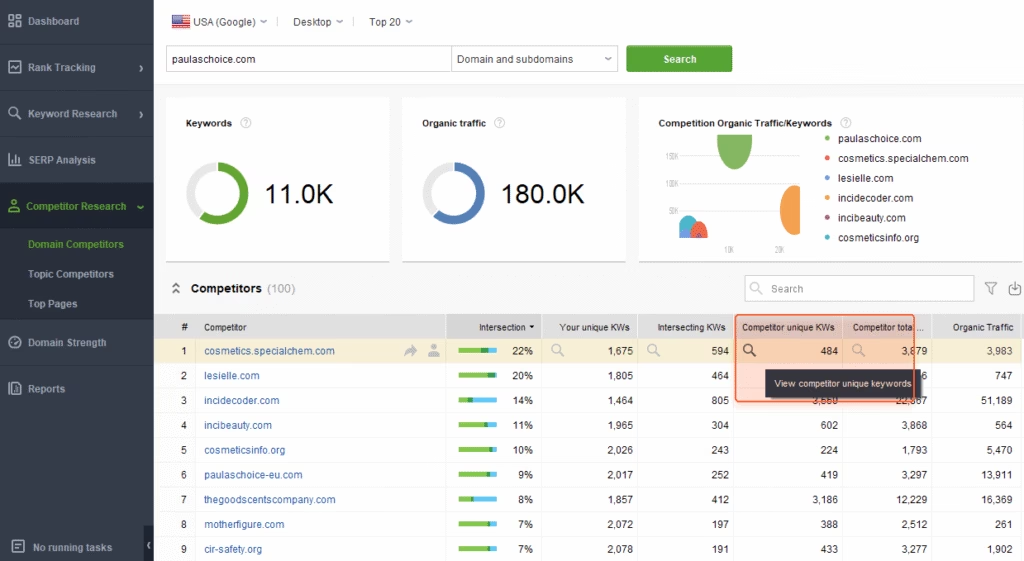
When we compare Moz vs. SEO PowerSuite, SEO PowerSuite is a better alternative for rank tracking, backlink analysis, site auditing, and managing large SEO projects. Moz limits keyword and link data based on tier, and separates Moz Local and Moz Pro.
SEO PowerSuite offers unlimited projects, keywords, and backlinks in one interface, with integrations for Google Analytics, Google Search Console, and Lighthouse. Unlike Moz, SEO PowerSuite supports local rank tracking across 550+ search engines and includes TF-IDF-based content scoring and visual crawl diagrams.
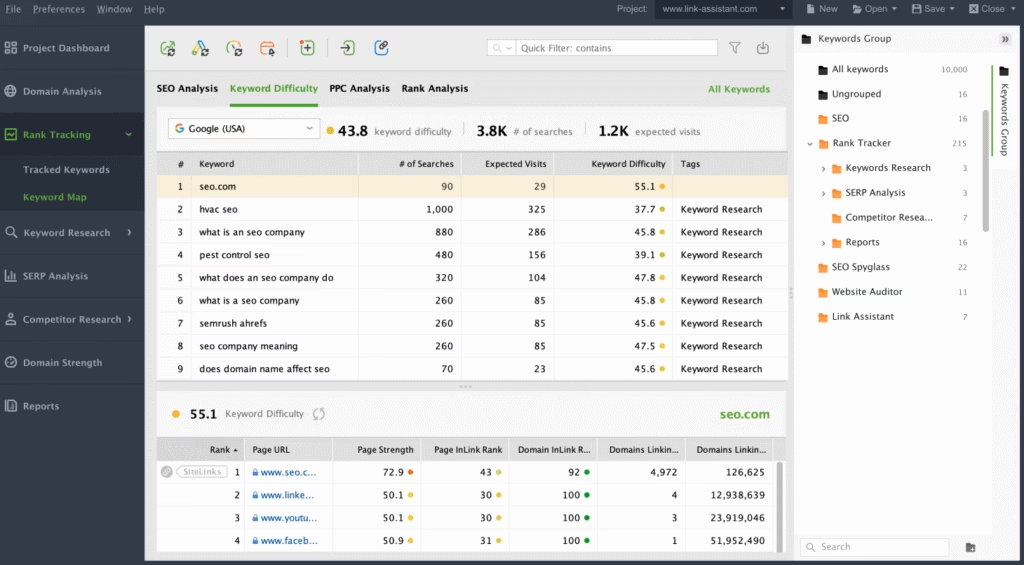
SEO PowerSuite offers a free version with limited export and report options, and a paid license that starts at $299/year. There are no monthly plans. Users download the software and run it locally without browser access.
According to the SEO PowerSuite review, the strongest pros are unlimited SEO data, one-time pricing, advanced site crawling, and desktop-level control. SEO PowerSuite cons are that all tools must be downloaded, and the UI is less intuitive than browser-based tools like Moz.
For technical SEOs, agencies, or anyone managing multiple domains, SEO PowerSuite offers a deeper and cheaper Moz Pro alternative that does not cap usage or segment features.
14. RankWatch
RankWatch is a cloud-based SEO platform that includes tools for keyword tracking, competitor SERP analysis, site audits, backlink monitoring, and local SEO insights. The RankWatch dashboard centralizes rankings, domain metrics, and site performance across multiple projects.
RankWatch users receive AI-powered recommendations to improve keyword visibility, fix on-page issues, and identify technical problems.
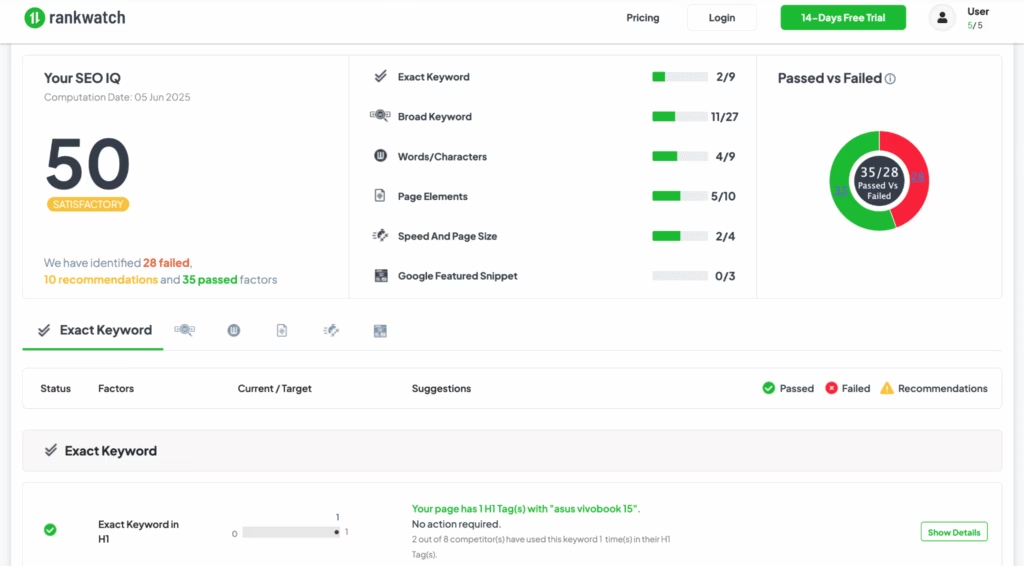
Compared to Moz, RankWatch is a better alternative for rank tracking, keyword visibility reporting, and affordable all-in-one SEO management. Moz updates rankings weekly and charges separately for local features. RankWatch supports daily updates, local rank tracking across devices and zip codes, and integrates local pack visibility into its dashboard. Users track keywords by location, tag SERP features, and analyze competitor trends in real time.
RankWatch offers a 14-day free trial with full feature access, with paid plans starting at $29/month, which makes it one of the cheapest Moz Pro alternatives. RankWatch offers free SEO tools such as a Mobile Friendly Checker, Website Analyzer, and Backlinks Analyzer.
The RankWatch review highlights strong pros such as intuitive rank tracking, local visibility reporting, and affordable pricing for freelancers and agencies. The main cons of RankWatch are that its backlink index is smaller than Moz’s, and its content optimization tools are limited.
RankWatch suits small teams, consultants, and startups that are looking for cheap or free Moz alternatives with daily data and flexible reporting.
15. AccuRanker
AccuRanker is a premium rank tracking platform for SEO agencies, consultants, and enterprises that need accurate, real-time keyword data at scale. AccuRanker supports daily updates, AI Share of Voice, dynamic tagging, and forecasting features that demonstrate the business impact of SEO efforts.
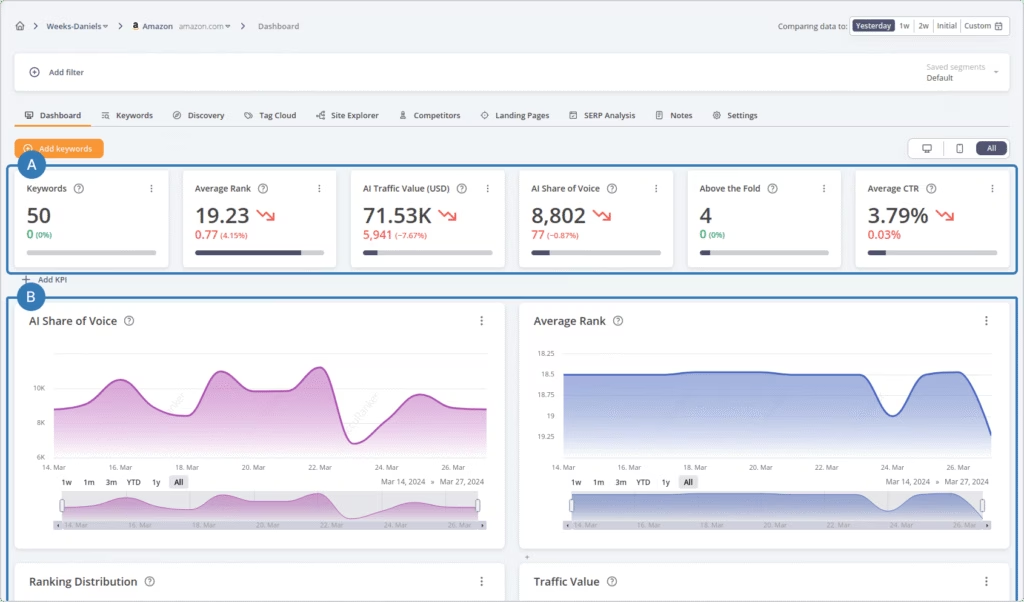
AccuRanker includes SERP analysis, historical keyword performance, and competitor tracking at the URL and group levels.
Compared to Moz, AccuRanker is a better alternative for rank tracking. Moz updates rankings weekly and offers limited segmentation. AccuRanker delivers daily updates, unlimited keyword grouping, and filters for SERP features, search intent, and device type. It integrates with Google Analytics, Google Search Console, Looker Studio, and third-party tools through an open API.
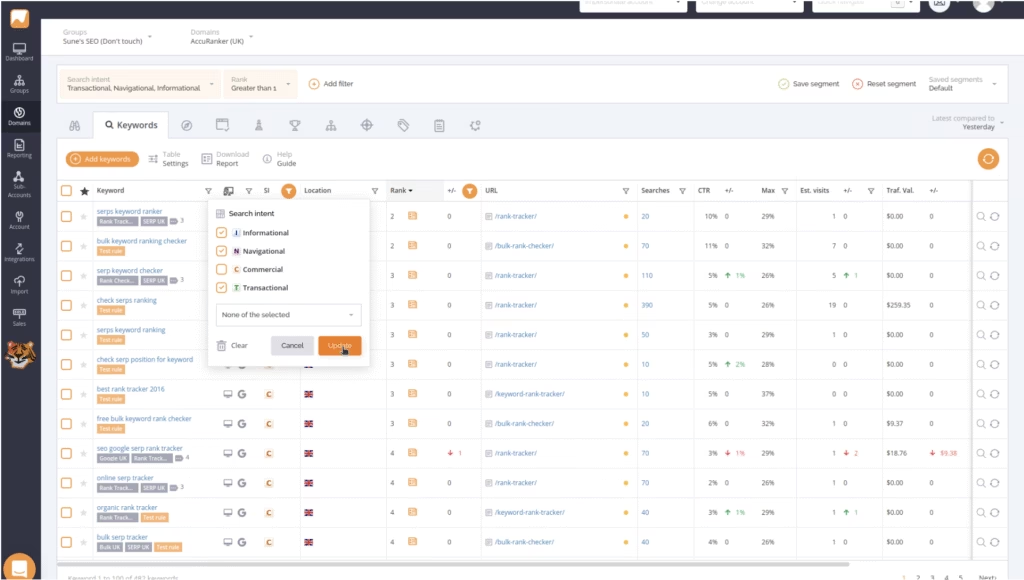
AccuRanker is a paid tool with a 14-day free trial, and pricing starts at $116/month for 1,000 keywords, which makes it more expensive than Moz for small users but more precise and scalable for professional SEO teams.
The AccuRanker review shows pros like real-time data, intuitive dashboards, scalable user access, and transparent forecasting tools. The main cons include limited on-page or backlink analysis and pricing that may not suit individual users.
AccuRanker is a strong Moz alternative for SEOs who need high-frequency, high-precision ranking data with advanced reporting and client-ready visualizations.
Are There Competitors Like Moz Local for Business Listings?
Yes, competitors like Moz Local for business listings include tools like Search Atlas, Yext, and BrightEdge. Search Atlas, Yext, and BrightEdge offer stronger business listing features than Moz Local, especially for multi-location and automation-heavy use cases.
Moz Local supports citation distribution and review management but only operates in the US, UK, and Canada. Its listings run through a fixed directory set, and features like Listings AI and Reviews AI require additional fees. Users often seek alternatives to Moz Local when they manage global locations, scale to hundreds of profiles, or need review workflows that exceed manual moderation.
Search Atlas replaces Moz Local’s functionality with AI-assisted GBP management, automated review replies, aggregator-level citation submission (Foursquare, Data Axle, YP Network), and live rank heatmaps, an AI Google Business Profile Writer, all included by default. Search Atlas handles location-specific content, schema deployment, and automated Q&A through OTTO SEO. It allows full task execution without switching platforms.
Yext specializes in structured data control and third-party listing synchronization. It integrates with enterprise CRMs and POS systems to manage brand-wide data across 200+ publishers. However, Yext’s core strength lies in syndication, not optimization or content creation, and advanced features require high-tier contracts.
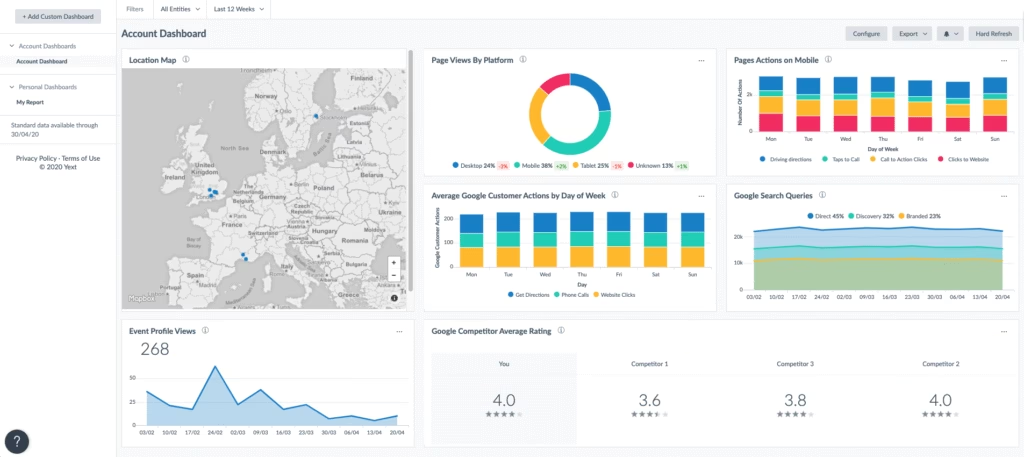
BrightEdge includes local visibility reporting and keyword tracking by zip code, but it does not manage GBP profiles or citations directly. Local SEO inside BrightEdge works best as part of a broader analytics stack, not as a standalone local execution solution.
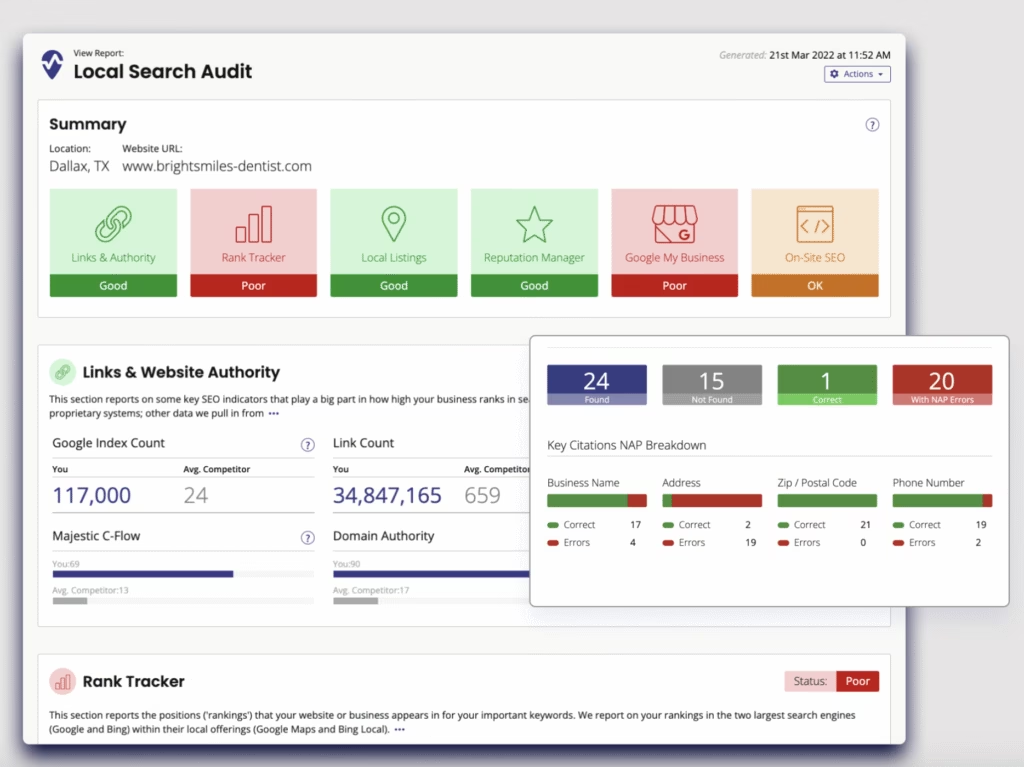
Compared to the other Moz Local competitors, Search Atlas supports full-stack local SEO, with real-time optimization, execution, and reporting in one interface. It does not require third-party add-ons or regional plugins, which makes it a direct replacement for Moz Local with greater coverage and less friction.
Why Do People Seek Alternatives to Moz?
People seek alternatives to Moz when the platform fails to meet their scalability, content, or technical needs. While Moz earned its reputation through accessible UX and education, its tools now fall short in data depth, modern optimization, and international flexibility. Users often start with Moz, but switch as their SEO workflows mature.
The most common issue users have with Moz is limited data coverage. Moz’s keyword index is significantly smaller than Semrush, Ahrefs, or Search Atlas, which leads to missing search terms, unreliable volume estimates, and fewer content opportunities. Moz’s backlink database lags, often omitting referring domains or anchor context that competitors expose in more detail. These limitations frustrate SEOs doing competitive research, link audits, or SERP-driven strategy.
Many users search for a reliable MozBar alternative when Moz’s SERP overlay or link data limits their analysis or stops working after sign-in issues.
Another major drawback of Moz is rigid pricing and fragmented features. Users must pay separately for Moz Local and Moz Pro, and Moz Local only supports a few countries. Rank tracking and reporting are capped even on higher tiers. Teams that manage clients or international sites often outgrow Mozl’s structure.
Moz lacks modern content SEO functionality. It does not offer NLP-based optimization, real-time SERP comparison, or AI content workflows. Tools like Search Atlas, Surfer, and Frase now dominate in content scoring and topical depth.
Finally, Moz’s technical SEO tools are outdated. Moz’s crawler does not handle JavaScript rendering, deep Core Web Vitals analysis, or mobile-first indexing insights.
In short, Moz remains helpful for small businesses and beginner SEOs, but SEO professionals move to platforms that deliver deeper data, broader automation, and better support for today’s technical, content, and local SEO needs.
What to Look for in a Moz Alternative?
The best Moz alternatives replace Moz without limiting features, hiding data behind upgrades, or slowing teams down. While Moz offers solid entry-level tools, users often move on when they need deeper backlink analysis, better content SEO coverage, or international support.
The 10 features to look for in a Moz alternative are below.
- Deeper Keyword Research Coverage. Moz’s keyword index is smaller than major competitors. Top alternatives surface missing terms, SERP clusters, and international volumes across more languages and markets. Look for tools that support advanced keyword research and real-time suggestions.
- Stronger Link Analysis Tools. Moz’s Link Explorer lacks depth on anchor context, domain strength, and link velocity. Leading alternatives include a backlinks analysis engine with lost link tracking, link gap detection, and trust metrics for outreach and audits.
- Smarter Content Optimization. Moz lacks NLP scoring, SERP-based content guidance, or live competitive benchmarks. Choose tools that support entity-based writing, content gap analysis, and real-time SEO content feedback across drafts.
- Technical SEO Insights. Moz’s audits are surface-level and miss deeper issues like JS rendering or mobile performance. Advanced technical SEO tools surface Core Web Vitals, structured data errors, and crawlability at scale.
- Local SEO Functionality. Moz Local works only in select countries and is priced separately. Look for integrated local SEO tools that include GBP tracking, review response automation, and location-based rank heatmaps.
- Scalable Rank Tracking. Moz’s rank tracking is limited by plan and lacks advanced segmentation. Leading platforms offer geo/device-level updates, daily refreshes, and export-ready rank tracking reports for clients or internal teams.
- Customizable Reporting. Moz restricts export formats and dashboard flexibility. Top alternatives include white-label dashboards, automated client reports, and integrations with Google Search Console and GA4.
- Integrated SEO Execution. Moz splits keyword research, link building, and on-page optimization into separate tools and workflows. In contrast, modern Moz alternatives combine tasks into unified dashboards where you can plan, optimize on-page SEO, and publish content, manage backlinks, and fix technical issues from one interface.
- Real-Time AI Support. Moz lacks any built-in AI features. Look for platforms with AI SEO agents that auto-resolve issues, rewrite metadata, or assist in drafting optimized blog content.
- Better Value at Scale. Moz gates features behind multi-tier pricing. Most users switch to platforms offering full-stack access, fair usage caps, and no upgrade penalties for basic SEO tools.
Which Moz Alternative Offers the Best Balance of Features and Price?
Search Atlas offers the best balance of features and price among all Moz alternatives in 2025. Search Atlas delivers full access to its SEO suite under a single transparent subscription, unlike Moz, which divides key tools between Moz Pro and Moz Local with feature-based pricing.
Search Atlas includes keyword research, backlink analysis, technical audits, local SEO dashboards, rank tracking, AI-powered optimization, and white-label reporting in every plan. Users run site audits, optimize content, publish topical clusters, manage GBP profiles, and launch link outreach from one dashboard. Moz limits these functions across separate tools or gated tiers.
Search Atlas uses real-time keyword data pulled directly from Google Search Console (GSC) and automates execution with OTTO SEO. Moz surfaces issues but lacks automation. Search Atlas users apply schema, resolve Core Web Vitals problems, and improve internal linking without developer intervention.
Moz’s pricing scales by usage tier, and Moz Local supports only three countries (the US, UK, and Canada). Search Atlas supports global tracking, local SERP heatmaps, and AI review response scheduling for GBP, all included.
Search Atlas replaces multiple Moz subscriptions with a single plan that covers the entire SEO workflow.
Try Search Atlas free for 7 days and compare value at scale.





